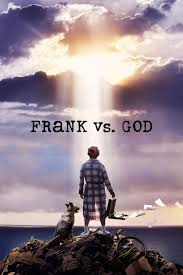“Why do bad things happen to good people?” – A question that has echoed through time, and one that takes center stage in the thought-provoking 2014 film, Frank vs. God.
This unique courtroom drama blends humor and deep philosophical questions, offering a fresh perspective on faith, skepticism, and the meaning of life. Unlike conventional legal dramas, this film challenges not just the law but also the very idea of divine justice.
Table of Contents
A Legal Battle Against God?
The story follows David Frank (played by Henry Ian Cusick, best known as Desmond from Lost), a former lawyer who has lost his way after the tragic death of his wife. His grief turns into cynicism, and just when he thinks life can’t get any worse, a hurricane destroys his home.
When his insurance company refuses to compensate him under the claim that the disaster was an “Act of God,” Frank makes an unprecedented decision—he doesn’t sue the insurance company. He sues God.
As the case gains national attention, Frank finds himself facing off against religious leaders, theologians, and scholars, all while confronting his own grief and unresolved anger toward the divine.
A Stellar Cast with Compelling Performances
The film boasts an impressive cast, including:
- Henry Ian Cusick (Lost) as David Frank
- Ever Carradine (The Handmaid’s Tale, Supergirl) as opposing attorney Jailene
🎬 Memorable Quotes:
One of the most powerful moments in the film comes during a courtroom exchange between Jailene and Bishop Rossini (Tom Noonan). The dialogue touches on the age-old question of why suffering exists.
Jailene:
“Bishop Rossini, why do bad things happen to good people?”
Bishop Rossini:
“To answer that, one would need to know the unknowable—the mind of God Himself. Sometimes the meaning of a tragedy is difficult to comprehend, but if one has faith, all things have meaning.”
Jailene:
“But why would a loving God allow these tragedies to happen? Does the Lord, as Mr. Frank suggests, want us to suffer?”
Bishop Rossini:
“I asked for strength, and God gave me difficulties to make me strong.
I asked for wisdom, and God gave me problems to solve.
I asked for courage, and God gave me dangers to overcome.
I asked for love, and God gave me troubled people to help.
I asked for favors, and God gave me opportunities.
I received nothing I wanted, but I received everything I needed.
My prayers were answered.”
This moment encapsulates one of the film’s central messages—what we desire in life may not always be what we need. While humans experience suffering, those hardships can ultimately shape personal growth and understanding.
More Than Just a Courtroom Drama
Despite its serious themes, Frank vs. God is not a heavy, solemn film. It masterfully blends humor with deep philosophical discussions, making complex theological concepts engaging and accessible.
The courtroom debates are not just about proving God’s existence; they serve as a platform for self-reflection, allowing the audience to contemplate the nature of suffering, faith, and purpose.
By the end of the film, Frank realizes that his fight was never truly against God—it was a battle with his own grief. And regardless of whether God exists, the more pressing question is how we choose to find meaning in our pain.
Final Thoughts: A Must-Watch for Thoughtful Viewers
If you enjoy films that challenge conventional perspectives while delivering humor and heartfelt moments, Frank vs. God is worth adding to your watchlist.
It offers a fresh take on spirituality, justice, and the human condition—all wrapped up in an engaging courtroom battle.
👉 [Watch the Movie Here]


답글 남기기